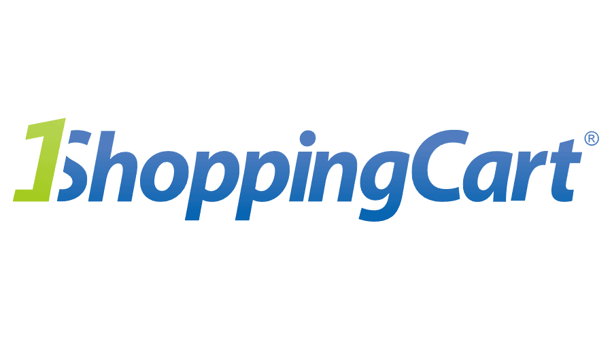
Welcome to our bumper group expert interview. We spoke to 26 experts to answer the question:
What are the three key pieces of advice you’d give small businesses looking to grow?
Growing a small business is often one of the most difficult tasks that you have to undertake. Particularly when you’re just getting started. Hopefully, this article can help you achieve that.
The Experts
Brian Dean — Backlinko
- TALK to your customers. As in meet them in real life or talk to them over the phone. This was the best thing I ever did for my business. Two 15-minute talks with customers proved that 90% of my assumptions about their problems were wrong.
- Build your email list. The biggest ecommerce site in the world (Amazon) understands the power of email. But if you’re a smaller ecommerce site or blog, you have a huge advantage over them: you’re small.
That means you can pepper your emails with personality, stories and even deals that feel more human.
But to get to that stage, you need emails. And lots of ‘em.
- 80/20 your SEO. You can’t get around it: if you’re not showing up for keywords that your customers search for, your competition is.
Unfortunately, SEO isn’t easy or straightforward. And that’s why many people abandon it altogether.
Instead, apply the 80/20 rule to SEO. That means focusing on the fundamentals, like keyword research, on-page SEO and link building.
Tash Kahn — Appleyard Flowers

- Put yourself in your customer’s shoes. You really do not know your customer until you listen to them. There are many tools nowadays to know what your customers are saying about you and what is important to them: from reading the reviews they post online to investigations in Analytics to know where they are based and if they are visiting your site from desktop or mobile and at which time of the day.
- Investigate less crowded marketing tactics. Everybody in the online sector is doing things like search engine optimization or paid per click ads but by thinking outside of the box, you can find unexploited opportunities. What about finding the new Instagram and running a test campaign there?
- Innovate in your products. This works especially well in traditional markets and if you succeed it will help to achieve high brand recognition.
Andy George — Hearts and Minds
- For small companies especially, it is really important to do the right thinking at the beginning of a year of activity. You need to say one thing really well, and make sure that the thing you are saying is sufficiently compelling that it can steal customers from your competitors, or at least prompt them to rethink their current buying behaviour as most customers are very habitual.
- You then need to make sure that everything you do follows this strong central message, whether it be PR, ads, social or in store items. As part of this, you need to think about the right personality for your brand and your message and stay true to this. Make your brand a character that people are drawn too, give them another reason to listen to your message, and ultimately buy your product.
- A final thought would be around media. However you are getting your message across, consider each item as an investment. From door drops to social media or PR, make sure you have an idea of who you can potentially reach and what conversion to sales you might expect. This often can’t be exact, but average rates for things like page conversions are available with a bit of time spent on google. It means that you’re aways holding your marketing to account from a financial perspective.
- Be obsessive about costs: Budget EVERYTHING. From petrol to marketing to stamps and coffee. Be obsessive about keeping track of costs. The easiest way to double profit for a company that does £100k turnover with £10k of profit is not to sell £200k worth next year, but to cut costs by £10k. That doubles profits but is much easier when you know where every single penny is accounted for. Have forecasts, both for this month and the next month but also for the entire next 12 months. Too many business owners stick their heads in the sand about this, but a real understanding of where your money goes is imperative.
- Increase Marketing Budgets: Marketing is essential for any business, especially in the startup phase. But it doesn’t have to be expensive. I’ve had 69,000 views on my youtube channel, but one video, for example, has only had 42 views. That video costs me nothing to create (like the others) but actually generated a new client at £5k of income. Marketing doesn’t have to be expensive. Create a podcast (Mine was in the New and Noteworthy section of iTunes for some time and continues to generate leads. It’s generated tens of thousands of downloads). Create videos on your phone. Post regularly on social media and ask people to share your content.
- Build Credibility: The more credible you are in the marketplace, the easier it is to sell. The number 1 issue clients have is whether to trust that you can do the job they want you to do. The more credibility you raise, the easier this is to reach a decision to use your services. You can increase credibility by using your own personal story “At first I struggled and then I did ‘this’ and that’s what we can help you with” type of thing. You can also get testimonials (both video and written). You can also get up on stage (You must be the expert if you’re on stage right ?). There are lots of things you can do to build credibility, and this can tie into your marketing campaigns nicely too.
Scott Woodley — Tutora

- Ask your customers what they don’t like:
Whether you run a small shop, a service business or an online platform, ask your customers what they dislike about your business, not what they think about it. That way, you’ll hear the things you really need to work on. - Don’t plan to death:
Whatever you envisage your business will look like in 6 months time, it won’t, so get started and be flexible. - Give it a go:
If you’re not sure whether something is a good idea or a bad idea, the only way to find out is by trying it out. We’ve had far more failures than successes, but the successes are worth it.
Bob — Inspire2Aspire

- Think about who you are selling to and how you help them that is different from your competitors.
- Measure what you do that is different so that there is evidence of how wonderful you are.
- Clearly explain how you change your customers lives rather than describing your product.
Sanjay Aggarwal — Spice Kitchen

- Use social media! We make a concerted effort to utilise social media (especially Facebook, Twitter and Instagram) for a number of purposes which all drive traffic to our site and help us to acquire customers.
- Blogger outreach can be a massive help for a small company looking to get their products reviewed and their name out there. We regularly send our new spice and tea products to food bloggers and we get reviews as well as excellent engagement on social media.
- Don’t underestimate the power of PR and the press. We have made a concerted effort over the last 18 months to write press releases, engage with journalists and also to write content for various publications. This has opened doors, converted sales and allowed us to get our name out there including places like the Guardian.
Jeremy Stern — Promo Veritas

- Find a niche and stay in it. What we do is very specialist. We are often asked by clients to help them create their promotions or to buy prizes for them or to design a leaflet. Whilst we want to service our clients, we believe in staying focussed, and being regarded as experts in our field, rather than marketing generalists. It seems to work for us, we are growing in staff, revenue and geographical spread.
- Present Well. Look professional. We take a lot of pride in how we communicate with clients. We have a quality email signature (that has messages that are updated regularly), all our proposals are carefully crafted and well branded. Whenever we attend client meetings we take along branded, purple, pens or notepads or umbrellas. And the branding extends to our website, our social media pages and even our office. It shows that we have a passion for the detail.
- Invest in good software. Keeping track of clients as they move within and between companies can be tricky. The same applies to the status of proposal, quotes and life jobs. Research and pick a piece of Sales Support software that works for your business. It will make life so much easier. You will be able to see the pipeline at a click of a button, prepare Christmas card lists with ease and identify potential resource problems and key deadlines in seconds.
Ian Cass — Forum of Private Business

- Understand where you are going to get you customers by creating a business plan and then marketing strategy. Nothing haemorrhages money like unfocused marketing
- Put in place the right people and the right technology — remember growth itself is a reason why some people will want to stay
- Make sure your paperwork is right — failure to be compliant usually costs money and some businesses will exploit loopholes in terms and conditions
Saul Gowens — Websand

- Growth means more business, it doesn’t always mean new customers. Market to your customers in a different way to people that haven’t bought from you yet.
- If you are a small business you can be agile, so make sure to allocate part of your marketing budget for testing new ideas.
- Set a benchmark and a time limit for everything you do, it takes the emotion out of decision marking. Keep doing things that are working, stop doing things that aren’t.

Three pieces of advice I would give to small businesses that are looking to grow their reach online would be:
- Focus on Ranking for Long Tail Keywords — This one might seem easy enough, but it’s something many brands and businesses still don’t do. Just ranking at the top of Google for one or two long tail keywords can result in thousands of new leads per year while also costing you nothing. I personally like to use tools like LongTailPro, which gives me competitor analysis numbers and lets me know what sites are ranking where. Go after the easy keywords, build high-quality backlinks and scale out as you perfect the formula.
- Create High-Quality Infographics — When was the last time you read a 10,000 word report online that was loaded with numbers and was just text writing? Probably not too often. However, when was the last time you saw an infographic and found it quite interesting? You might have even seen one this week! Take the time to create an amazing infographic that is relevant to your industry and business. Make sure it’s engaging and something that other sites in your niche would also want to post. Not only is this a great way to get your brand out there and share something people are interested in, it’s also a great way to bring new backlinks to your site as well. Here’s an example of how I did this recently for my make money blogging guide.
- Guest Blogging & Podcast Interviews — At the end of the day, everything on the internet comes down to content creation and publication. These are two areas that every individual, brand and business can use to get their name out there. Look for guest blogging and podcast interview opportunities within your industry and get to work! Yes, it does take time to create compelling content and doing interviews, but it’s also a free method of promotion that continually works today.
Lindsey — Little Fish Event Management

- Let go. You can’t do everything yourself. If you really want to grow you must understand where your own strengths and weaknesses lie. Even admin, there are so many virtual assistants nowadays. Make the most of the outsourcing and flexible working world and maximise pay-as-you-go assistance to suit your own budget and own needs. Don’t hold yourself back by holding on to tasks which you can’t let go of but could easily be done by somebody else. Your time is precious and you should use it using the skills which led to you setting up your business.
- Get an accountant sooner rather than later. I am almost 2 years into my business, I have always been terrible with numbers and I just don’t ‘get’ it all. But it is essential, of course, so if I could go back I would certainly seek the support of an accountant right from the moment I wanted to set up a business. I now have an awesome accountant (and virtual assistant) who make sure my numbers, books, invoices and payments are all on point. The worst mistake you could do would let your numbers hold you back and even let you fail. Unfortunately, we must conform to this aspect of running a business so we may-as-well get on board the train as early as we can.
- Don’t be scared — be bold, be brash. If you are finally your own boss why the hell waste the opportunity being too nice, too reserved or conforming to what you have been taught in your past working/corporate world. This is your chance to shine and be who you really want to be, so let your personality shine through in everything you do. From the tone of voice, you write in, to your logo, company name and social media strategy. You’ve already got balls to go it alone, so why not have balls to shout about yourself loud and proud.
Miguel Salcido — Organic Media Group

The advice I would give would be to build relationships with businesses and publishers (both online and offline) and offer them something. Maybe it’s a coupon, or maybe you become a regular guest contributor at a popular niche blog or publication? But connecting with industry influencers and building your personal brand are the best things you can do for your business. And the best part about it is that its one of the best things you can do that won’t cost you a dime!
Daniel — Daily Writing Tips

- Leverage social media. If you combine Facebook, Instagram, Twitter and Snapchat, you would probably get close to 100% of the population of any developed country. In other words, these are excellent channels to reach your potential customers. Experiment with all social networks, and with different promotion strategies. Find the ones that work better, rinse and repeat.
- Leverage paid advertising. Figure out the lifetime value of a single customer to you. That is, the amount of revenue that he will generate to your business over the lifetime of your relationship. Once you have that number, start experimenting with paid advertising (e.g., Google AdWords, Facebook Ads, etc.) until you can bring a customer for less that his lifetime value to you. Once you find that, the more money you put in, the more you’ll get back.
- Find new products to sell and new niches to enter. Growing is often a matter of reinventing oneself and exploring new things. If you are not doing it, you might become obsolete sooner than you think.
Hector Cuevas — Hectorpreneur

- “The first piece of advice I’d give to small business owners is to simplify your marketing message. Leave the jargon at the door and talk about their needs, wants, and frustrations. Use their language. If you’re selling web design, they’re buying a beautiful site that gets them results. If you’re selling T-shirts, they’re buying into the story and the lifestyle built into the brand. Make the message clear.
- The second piece of advice is to practice Content Marketing. This post is the perfect example of an “expert round-up” post that brings in traffic and exposes new people to ShopRocket. Your job: Figure out what type of content your ideal customers enjoys reading; or what information would help them use your product better, and create it.
- The third piece of advice is to build your email list. Don’t expect people to find out about your products and services on their own. Offer something of value on your website, ask for their contact information, and when new services and products are released, you can just send ONE email and thousands of people will hear about it.”
Justin Germino — Dragon Blogger

Start off with a mailing list whether for coupons, newsletters or simple marketing purposes, an email list is still extremely powerful and valuable. Build a fan base on Social Media by engaging, listening to feedback, asking and offering to help with information about your products/services. Many people will talk about a product on Twitter/Social Media instead of contacting their support so make sure you are setting up the appropriate hashtag and alerts/monitors to focus on all mentions of your product/service/brand so you can respond promptly and professionally at all times. Finally, remember to reward customers with incentives to keep them coming back.
Venchito Tampon — SharpRocket

Here are my three actionable pieces of advice to help entrepreneurs grow their small businesses:
- Leverage trust-based marketing
Trust-based marketing is basically getting existing clients and leads to build trust towards your brand by servicing them with high-quality works that they themselves will get their networks and connections contact you for offerings. This is more effective than generating leads via search, as you’ll get a higher conversation rate through word of mouth marketing.
Invest in content creation
In terms of content creation, it’s very important to create content targeted on different marketing intents (see Marketing Funnel below) in order to tap audiences with various needs — i.e. informational or commercial. - Build relationships with influencers
This is easier said but done. If marketers will spend time searching for relevant communities and events, and tracking key personalities or influencers who are participating in those offline events, it is an initial step that will take their branding to the next level. When influencer identification is done, it’s time to build connections with these industry authorities by talking to them in offline conferences/seminars and/or reaching out to them through email or social platforms.
This will definitely consume a lot of time on your end, but it pays well when executed correctly.
Jason Acidre, an SEO authority included my two outreach tactics in his latest blog post, which drove a lot of traffic and leads to our company. I’ve invested time to build an authentic relationship with this person, which acquired high ROI.
Julia Streets — Julia Streets Productions

- Focus on how you can help your customers solve their business challenges. If you know what the keeps them awake at night and can help them solve the challenge, you’ll have a much better relationship with them. This in turn might generate more business for you.
- Display some thought leadership. Write and publish content that examines the customer challenges and offers interesting insights into how these challenges can be met. But don’t be too salesy, it turns readers cold. The fact that you have a solution is implied in the fact that you’re writing about the topic.
- Network, network, network: Be confident enough to get out there and tell people about your business and what you can offer. Otherwise, they’ll go elsewhere.
Rachael Dines — Shake It Up Creative

- Once your website /online store is up and running, verify the site with Google Webmaster Tools and see which search phrases are actually bringing traffic to your site.
- It’s not absolutely necessary to pay a subscription for an online payment gateway, PayPal works well for both account holders and customers wanting to pay by card.
- Don’t underestimate print PR or product features to drive visitors to an online store. 15% of UK shoppers used mobile as their primary shopping device in 2015 (eConsultancy) and this is increasing.
Alistair Reed — Hire Hub App

- Keep it simple- mobile is now the default channel, customers want a quick and easy line of communication so avoid complex and irrelevant messages.
- Listen to your audience- customers like to engage with brands in real time, so try to remain positive and engage with them- get to know them, brand loyalty is an important part of social media.
- Presentation is a priority- Marketing is becoming very competitive. Customers want to see brands deliver quality over and over again, so make sure you don’t let your standards slip- consistency is the key.
Loz James — Content Champion

- Work out what you’re really good at and focus only on the tasks that drive more revenue in line with your business goals.
- Outsource everything else to high-quality providers so you are constantly moving forward without trying to do everything at once.
- Devise documented systems and processes for points 1 and 2 so you can put your growth on rails.
Matthew Hunt — Powered by search

- Invest in online paid ads. Make sure you have a paid advertising model that allows you to buy leads or sales at a profit. If you do not have this set-up then you do not have a business. Basically, invest in PPC and figure out how to make it work is step 1 to building a successful business.
- Focus on buyers who have their wallets out. Make sure you focus on the low hanging fruit first. This usually means search marketing and means getting focused on keywords that have strong buying intent for your business’s services and/or products. DO NOT get lured into the new sexy marketing trend.
- Build lists! Email lists, remarketing lists, etc. The money is in the database you own. Find a way to provide free value to get people’s contact info and try to communicate with them weekly (daily if you can). If you can build a loyal group of fans, then your business will always be recession proof.

- Practice empathy. Always put yourself in your readers’ shoes. It will help you determine how to move forward.
- Build relationships. Social media is just that, social. If you succumb to the fear of putting yourself out there, your growth will be limited.
- Pursue quality over quantity. This will serve you well in SEO, content production and reputation management. It will also help you avoid burnout.
Charlie Marchant — Exposure Ninja

- Psst, have a quick spy on your competitors.
No matter how small or big your business is, whether you’ve been operating in your market for years or whether you’re new to it, you should always know what your competitors are up. Keep track of 3 or 4 of your main competitors, including the industry leader in your niche, two competitors operating at a similar level to your business and a competitor who is a bit newer to the field. Keep tabs on their rankings, the backlinks they’re building, their promotional activities including blogs on their website, articles they’re publishing elsewhere, their video marketing, their social media and, most importantly, their Google rankings. See how their website, rankings and digital marketing compares to your own and learn from it. - Know what’s trending in your industry.
Make sure you’re on top of everything that’s going on in your industry. What products/services are most popular? What’re people writing about your niche in the news and other online publications? What’s being covered on social media? I always recommend setting up Google Alerts for keywords related to your business. Google will condense a list of articles published daily or weekly on your specified keywords and send them straight to your inbox. Content research tools like Buzzsumo are excellent for finding content that’s currently trending online and on social media. You can find the most popular articles, infographics and videos in your industry and hook onto those trends to try and gain some big exposure for your business! - Create a content strategy to gain exposure online.
How a company is portrayed online can make or break a small business. To really get spotted, you need to create a content strategy that works for your business. This could involve guest posting on other websites, pursuing sponsored content opportunities, working with bloggers to gain reviews and features about your product/service, running competitions and giveaways with bloggers and social media influencers, featuring in YouTube videos, writing amazing and valuable blog content on your own website, and sharing all of this on social media. You want to create a buzz around your business, and a strong digital PR strategy will be the loudspeaker you need to amplify your business.
Bill Sebald — Green Lane SEO

- Keep your company core (mission, values, culture) happy and healthy while always pushing for growth — it’s a balance. If you fall to heavy on either side, you’re prone to wiping out.
- Build that network. Meet everyone. Essentially, focus on building serendipity. Some growth can’t be measured or tracked, but believe it is happening.
- Invest in marketing. It’s a noisy world (and internet). “Build it and they will come” is highly unlikely without marketing and promotion. If you’re budget conscious, don’t cut your marketing. Just take smaller gambles with your marketing, and reinvest with your wins.
Donna Moritz — Socially Sorted

- I often say that it is important to focus less on attracting new customers and focus more on romancing the ones that you have. A satisfied customer will refer their friends, so never underestimate the power of giving your current customers a lot of attention and value. If you do this right they will bring in new customers for you!
- Empower your team to market your business. Educate them about how to talk to clients, educate them on how to use and post on social media and empower them to advocate for your brand. They are your most powerful marketers next to your happy customers.
- Delegate what you can even if it is the smallest of jobs. The sooner you can focus your time on doing the things that really matter in your business the faster your business will grow. Think about what you would pay yourself to do the task you are doing — if is a task you can pay someone else less to do, consider handing it off. This is hard to do in the beginning if you have low cash flow but it could be as simple as asking a team member to work one more hour per week or to have an intern or work experience student on a project basis. Freeing up just 1 or 2 hours per week to let you work on the business rather than being in it can be a huge boost to your confidence and productivity. Think laterally!
Jonha Richman — Marketing That Makes Sense

- Create a Clear Profile of Your Existing Customers
This will help you ensure all the products, advancements and all sorts of developments will be properly guided by a clear picture of who your existing and potential customers are. Whenever you plan for a roadmap for your new feature or expansion, there will be that clear profile that will guide you and your team as to who these new additions will be tailored to. - Identify Your Early Adopters and Nurture Great Relationship
During the first few stages of your company, identify the following:
Innovators
Early adopters
Late adopters
Laggards
Focus on the early adopters as these are the ones who decided to embrace your product/service, nurture the relationship with them as these are the very people who helped your product/service to start from the ground and are eager to provide honest feedback should you decide to expand.
- Utilise The Available Resources, But Don’t Lose Your Focus
Many companies usually get attracted by the various tools and resources that “could” potentially help the business. Many social media channels are available, yet it’s important to identify where your core audience and customers are instead of spreading the initiatives thinly in all places. These usually eat up the resources and time which could be best spent only in places/resources where the efforts could actually convert.
John Paul Aguiar — John Paul Aguiar & Brainy Marketer

Blogging Entrepreneur that helps Small Business Owners and Entrepreneurs better use Blogging and Social Media to grow their business online.
- Get more personal. Get in and talk, share and connect with your customers and potential customers. Share your story, share some personal. People connect with people.. if they connect with you, then trust you they will then BUY from you.
- Don’t get comfortable, no matter how well your doing NOW, make sure to continue to grow and expand. Things change very quickly, so yes you may be killing it today, but who know what will happen in a few days, weeks months.
Better to see the success, enjoy the success, and then BUILD of that success/momentum to keep it going long term - Be more helpful, share more helpful content. The more you can be helpful, the faster they will come back for more and possibly buy from you. You can NEVER be too helpful, help customers and potential customers on all levels.
How to better fix they issues.
How better to fix their issues with your help.
How better to use your product/service so they get the most they can from their purchase.

There is so much to growing an online business, but here’s a good place to start:
- Best practice is only the beginning — A lot of marketing advice you’ll find the web is based on best practice. It could work amazingly, but every industry and audience group is different. So test to find what works.
- Connect with influencers — Whatever industry you work in, there will likely be a group of people who already have influence over a large cross-section of your target audience. Plan out a strategy to get your product in front of their audience in a none icky way and you’ll grow far faster.
- Start building an email list right away — Social is important, but email has a far bigger ROI. So build your email list first, then use your email list to encourage your subscribers to join you on your priority social networks.
Thank you for taking the time to read this. Hopefully, you learnt something interesting and useful. If there’s someone that you feel would like this article, feel free to forward it on to them.






